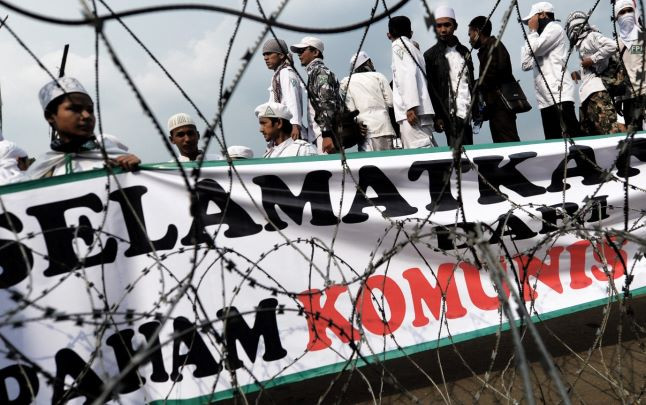Popular Reads
Top Results
Can't find what you're looking for?
View all search resultsPopular Reads
Top Results
Can't find what you're looking for?
View all search resultsWhy Indonesia can still not cope with the specter of communism
Various competing interpretations of the 1965 events have emerged, not as an academic presentation but as a provocative and baseless accusation.
Change text size
Gift Premium Articles
to Anyone
I
n Indonesia the spectral idea of a “communist presence” used to peak in September, regardless of the fact that the Indonesian Communist Party (PKI) vanished nearly six decades ago during bloody purges in 1965-1967. Yet the myth of a dangerous communist resurgence was invoked frequently, gained considerable traction and was believed by millions.
The assertions concerning the supposed revival of millions of communists after they had been physically obliterated and legally banned many years ago were utterly ludicrous and were not based on any evidence. However, these narratives are always living in our veins, particularly around the commemorations of the so-called G-30S on Sept. 30.
Indonesia is not the only country haunted by the worrying trend of illusory threats of the communist specter. The communist phantasm has recently hit numerous countries, indicating that giant waves of conservatism are under way.
Thailand is worthy of citation not only because of a similar history in having a communist party in its past but also because of the residue it has left in today’s political imagination. In 2019, elites, generals and Thai politicians fostered the fabricated news of a communist conspiracy as a dangerous threat.
Similar patterns have also prevailed in western democracies such as the United States and the United Kingdom, which exploited the fear-mongering of the communist threat during elections. Moreover, the rise of populism in Brazil promotes a massive wave of anticommunist sentiment.
Research shows that we face constant anxieties about rumors of communist threats. In a study of political actors and their perception of the communist revival, a survey of politicians in late 2017 and early 2018 concluded with a remarkable result: 43 percent of provincial legislative council (DPRD) members believed the PKI was undergoing a revival. The shadow of the PKI haunts the collective imagination, as seen in other research conducted by numerous scholars, suggesting that this figure was an indication of the rising intolerant and conservative power holders to sensitive issues such as communism.
Should we accept this repetitive feature of anticommunism as an escapable fact of life in modern Indonesia?



















